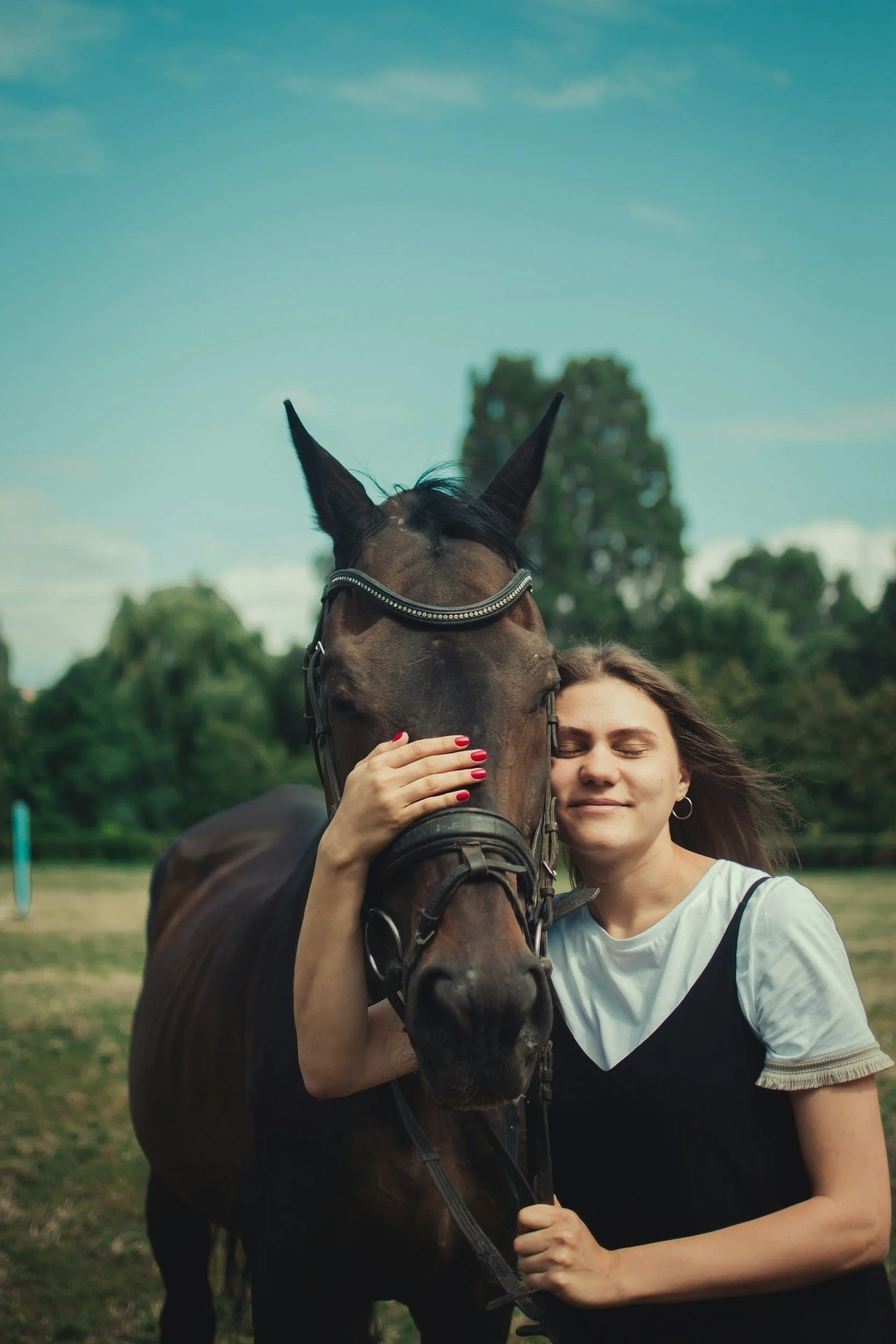The Rest We Seek: A Journey Back to Inner Safety
Rooted & Rising: A Mental Health Series for Women – Part 7 (Final Post). Catch up with Part 6: Sacred and Still: When Culture and Self-Care Collide and Part 5: The Path We Forge: Finding A Supportive Community
Safety can be found in trusted bonds
whether human or animals.
This post marks the final chapter in the Rooted & Rising series—seven trauma-informed reflections honoring the emotional labor, survival, and self-reclamation women carry. We close not with a finish line, but with an opening: an invitation to soften, to slow down, and to feel safe in your body again.
In a world that glorifies productivity and praises women who “push through,” it can feel foreign, even unsafe, to rest. Cultural expectations, generational roles, and invisible emotional to-do lists weigh heavy. But burnout is not a personal failure. It is a symptom of something bigger hiding inside. And you were never meant to carry everything without pause.
Your nervous system does not need more willpower. It needs safety. It needs joy. It needs permission to rest.
The Physiology of Peace
Peace is a physiological state we can return willingly.
According to trauma experts like Dr. Stephen Porges and Dr. Gabor Maté, our bodies heal not through pressure, but through safety cues including:
- Slow, rhythmic breathing
- Warm connection
- Laughter
- Soothing textures
- Gentle movement and stillness
These experiences help regulate the polyvagal system, which controls how we shift between survival and rest. When we begin to feel safe enough, both physically and emotionally, we send a powerful message to the brain:
“The danger has passed. You can stop bracing now.”
This is why grounding is not a just a trendy buzzword. It is a biological intervention. Rest is not a weakness. It is how your body recalibrates after long-term stress. Trust me. You need to pay attention to the physical clues.
Journal Worthy
Rest is not a reward. It is part of the healing.
Discover why your nervous system needs calmness to recover.
Ask yourself, gently and without urgency:
What does safety feel like—not just conceptually, but in my body?
Is it silence? A certain scent? A weighted blanket? A boundary I kept?
And how can I offer myself five minutes of that safety today?
Small Joy, Big Healing
Joy doesn’t have to be performative.
It can look like stillness by the river.
Healing doesn’t have to be dramatic. Sometimes it’s quiet.
- Rest might look like lying down with no expectations while listening to soothing music.
- Joy might sound like a song you forgot you loved.
- Grounding might be the texture of warm laundry or a soft blanket.
These are not escape actions. They are reconnections to self, to safety, to softness.
Even one moment of joy is a declaration: I’m worthy of peace now, not later.
🌬️ Try This Grounding Practice Today
Sometimes the safest place is the space we make within ourself.
- Hold something soft (a warm cup, a textured object, a soft stone)
- Inhale slowly through the nose, then exhale twice as long
- Gently place your hand on your heart or your belly
- Say aloud or in your mind: “I am safe. I am enough. I can rest.”
Each time you do this, you help your nervous system recognize:
You made it. You’re allowed to stop surviving and start feeling.
References
- Porges, S. (2011). The Polyvagal Theory: Neurophysiological Foundations of Emotions, Attachment, Communication, and Self-regulation.
- Maté, G. (2022). The Myth of Normal: Trauma, Illness, and Healing in a Toxic Culture.
- https://polyvagalinstitute.org
- https://drgabormate.com
Call to Action (CTA)
There are times when safety looks like sunlight, solitude, and a good book.
Begin where you are. Begin with something small. Begin today.
Download your free guide: 7 Days of Tactile Self-Care—a grounding practice for your nervous system, one moment at a time.
👉[Download your 7 Days Tactile Self-Care Guide here]
👉 [Return to the Full Series]
If you are healing from emotional aftermath of job loss or workplace trauma, you might also find comfort in this reflection: The Emotional Cost of Offboarding: Ethics, Dignity, Job Loss
Need help Finding your Peace?
Download the free Trauma-Informed Self-Care Guide created to support the Rooted & Rising Women’s Mental Health series.
At My Journey Compass Health, we hold a safe, trauma-informed support rooted in rest, emotional safety, and reconnection. Schedule your free consultation below.
Ready to talk? / ¿Lista(o) para hablar?
English:
• Trauma-informed, integrated psychiatric care
• Non-controlled medication management
• For adults, teens, and children ages 6+
Español:
• Atención psiquiátrica integrada y con enfoque en trauma
• Manejo de medicamentos no controlados
• Para adultos, adolescentes y niños a partir de los 6 años
*This blog is for educational purposes only and does not constitute medical advice or establish a provider–client relationship.*
*Este blog es solo para fines educativos y no constituye asesoramiento médico ni establece una relación proveedor–paciente.*






